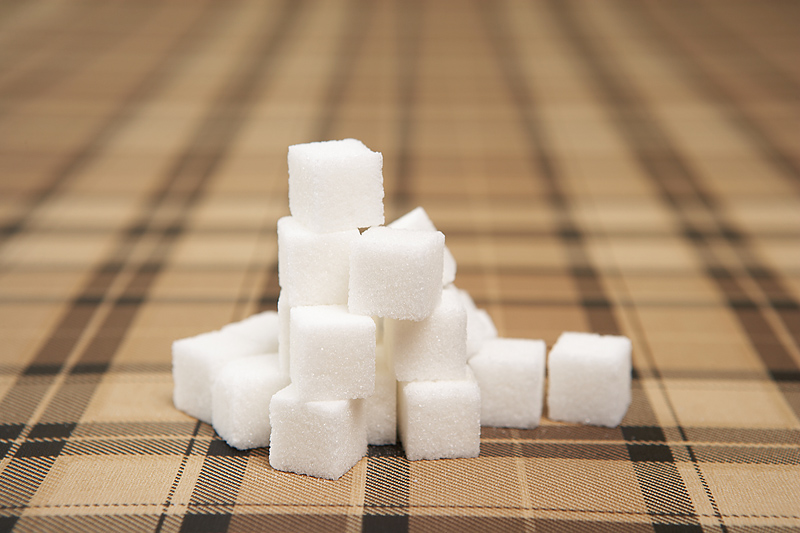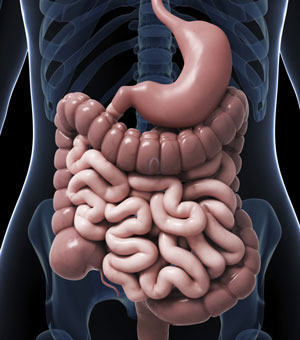Stay Informed
Popular Articles
- Hiatal Hernia: Hidden Cause of Chronic Illness
- Small Intestinal Bacterial Overgrowth (SIBO)
- Applied Lymphology: Unlocking the Secret to Pain Relief
- An Introduction to Constitutional Iridology
- The Low Down on Liver Detoxification
- An Energetic and Emotional Approach to Cancer
- Fat Facts
- Marrow in the Bones
- Blood Type and Nutrition
- Cardiac Herbs: Beyond Hawthorn
Quick Search
The School of Modern Herbal Medicine




Breaking the Addiction to Sugar
- 7/10/2008
- Categorized in: Nutrition
 This is part one of a three-part article. Be sure to read the other parts of the article.
This is part one of a three-part article. Be sure to read the other parts of the article.
Part Two: Kicking the Sugar Habit
Part Three: Helps for the Recovering Sugar Addict
From my own personal experience, I can tell you that if you want to improve your health, the single most important thing you can do is eliminate refined sugar from your diet. This is easier said than done for two reasons. The first reason is that refined sugar is highly addictive and the second is that it's found in so many foods that you really have to be diligent to avoid it. However, if you want greater mental clarity, a higher energy level, better weight management and general good health, you should eliminate (or at least drastically minimize) your intake of refined sugar. I'm convinced that you cannot eat refined sugar and maintain optimal health, period!
My Own Search for Good Health
To explain why I feel this way, I want to share with you a little of my own history in seeking good health. Like many people who are involved in natural healing, I had serious health problems growing up. I was plagued with chronic sinus problems in my youth. From the time I was a small child, I was a mouth breather, simply because my sinuses were always plugged up. I also “caught” colds frequently, and every time I did my mother took me to the doctor for antibiotics.
In junior high school the doctor said I had chronic sinusitis and had me take penicillin every day for two years, which was supposed to clear it up. However, at the end of the two years my sinuses weren't any better. In fact, they were worse. I don't blame my family doctor; he was a wonderful, kind man. He just didn't know any better.
In 1973, after my first year of college, I was working as a camp counselor for the YMCA. About half-way through the summer I got sick, took a round of antibiotics, and felt better, then had a relapse where I felt even worse. After the second round of antibiotics, the doctor gave me two shots of gamma globulin to boost my immune system and prescribed a B-complex vitamin with vitamin C which he said would help with stress. This seemed to really help, at least for a time.
However, at the end of the summer I went to Southern California on a two-year mission for the church I grew up in. The smog really aggravated my respiratory system and within about six weeks I started to get sick again. For the next six months, I was constantly battling congestion, sinus drainage and sinus headaches. The following spring, I wound up in bed for two weeks with pneumonia. After a week on antibiotics, I wasn't any better, so the doctor had me come to his office every day and gave me a shot of tetracycline as well as an oral dose of ampicillin.
When I was feeling better a week later, he put me on antihistamines. I took them and my sinuses were clear, but I was constipated for a week. When I was finally able to go to the bathroom again, I thought, “I'm not going to do this anymore.”
Fortunately, there was a chiropractor nearby who belonged to my church and offered to start treating me for free. He encouraged me to stop drinking milk (funny no doctors had ever mentioned this) and to make some other adjustments to my diet. I actually started to feel better.
Intestinal Dysbiosis
 To anyone who knows about the side-effects of antibiotics, it should be obvious by now that I had a massive problem with intestinal dysbiosis, an imbalance in the kind and quantities of microbes living in the intestines. I probably had yeast overgrowth and/or small intestinal bacterial overgrowth (SIBO).
To anyone who knows about the side-effects of antibiotics, it should be obvious by now that I had a massive problem with intestinal dysbiosis, an imbalance in the kind and quantities of microbes living in the intestines. I probably had yeast overgrowth and/or small intestinal bacterial overgrowth (SIBO).
Chiropractic care and giving up milk and ice cream got me through the rest of my mission with less incidence of sickness. After returning to Utah from my mission I was given a copy of Back to Eden by Jethro Kloss. I started using some of his suggestions and continued to improve.
By the early 1980s I was eating less and less refined sugar and had gradually been moving towards more natural sweeteners, such as honey, maple syrup, date sugar, etc. Of course, I also quit using antibiotics entirely and switched to using garlic, goldenseal, Herbal Crisis (Ed Millet's modified Composition, a formula found in our courses), lobelia and capsicum when I got sick. The result was that my immune system got stronger.
I am totally convinced that my gradual dietary improvements and my use of the herbs listed above resulting in a reduction in bacteria and yeast overgrowth in my intestines, but I never actually went on a candida diet. I personally consider what most people do to try to control candida to be rather extreme and in some cases absurd.
For example, I don't believe that natural vinegar or mushrooms directly contribute to dysbiosis. In fact, some mushrooms, like ganoderma and reshi mushrooms actually help restore a person's immune system. Bread is probably a problem, but not because it contains yeast as leavening. Yeast feed off simple sugars, and white bread and polished rice convert rapidly into simple sugars, which feed yeast and intestinal bacteria.
I also think that it's ridiculous to avoid all natural sugars in trying to combat dysbiosis. I never did. For example, avoiding fresh fruit has always seemed extreme to me. Fruits contain fruit acids and other ingredients that build immunity and help control microbes, not just sugar. In short, my experience in overcoming what was obviously a severe yeast problem without doing any of these things makes me doubt their necessity.
